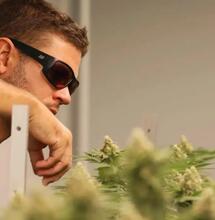From Outlawed to Mainstream: UNESCO Changes Direction on Cannabis

Cannabis is finally making its way onto the global cultural stage. UNESCO's flagship conference, Mondiacult, celebrates the centenary of its international prohibition and, in a significant shift, has dedicated a prominent platform to the plant. This historic event not only reflects the growing global acceptance of cannabis but also marks a crucial moment for its integration into global cultural policies.
An Unprecedented Debate
UNESCO's World Conference on Cultural Policies and Sustainable Development (Mondiacult), the largest cultural conference in the world, welcomes delegations from all 194 member states to define the cultural agenda for the coming years.
The 25th edition, taking place from September 29 to October 1 in Barcelona, will feature the participation of two leading civil society organizations: FAAAT (Forum Drugs Mediterranean) and Cannabis Embassy.
These organizations will advocate for the urgent need to place cannabis at the center of cultural policy discussions, just as the United Nations prepares its post-2030 development framework. This bold initiative aims to rewrite the century-old narrative of prohibition, transforming it into a path toward cultural recognition and the protection of intangible heritage.
Key Documents and Future Perspectives
FAAAT and Cannabis Embassy presented two official contributions, which serve as key tools for the debate at Mondiacult:
1. "Cannabis: A Plant Without Borders. Cultural Diagnosis, One Hundred Years After Its Prohibition": This technical document analyzes the history and cultural legacy of cannabis, offering an updated assessment of its global status.
2. A consultation report on the role of cannabis communities in preserving intangible cultural heritage, which includes valuable insights gleaned from events in Barcelona and Santiago, Chile.
This inclusion is no coincidence; it coincides with the centennial of cannabis's recognition in the international pharmacopoeia and its designation as a narcotic substance. The goal is clear: to reframe this legacy and integrate cannabis-related practices into broader cultural heritage protection and sustainability programs.
Voices from the Front Lines of Change
Sébastien Béguerie, president of FAAAT, emphasized the importance of the event, calling it "the largest international gathering dedicated to culture." Kenzi Riboulet-Zemouli, an expert on international drug policy, described the 2025 edition as a "decisive moment" for integrating cannabis cultures into the next United Nations development strategy.
This initiative reflects a global trend, representing a genuine shift from prohibition to cultural recognition.
The FAAAT, which has been at the forefront of drug policy reform for over twenty years, played a crucial role in the United Nations' reclassification of cannabis in 2020. The Cannabis Embassy, founded in 2024 to unify international cannabis advocacy, continues this work by appointing "cannabis ambassadors" and actively participating in global forums.
Mondiacult, which brings together thousands of policymakers and cultural practitioners every four years, offers a unique opportunity. As the 2030 Agenda for Sustainable Development approaches its conclusion, the 2025 conference presents an ideal time to reevaluate the role of traditional and contemporary cannabis cultures in global decision-making.
More From Soft Secrets:
What Happened to the Merger of Barney's Farm, Sensi Seeds & ILGM?
The EU Plans to Recognise Hemp Flowers as an Agricultural Product







